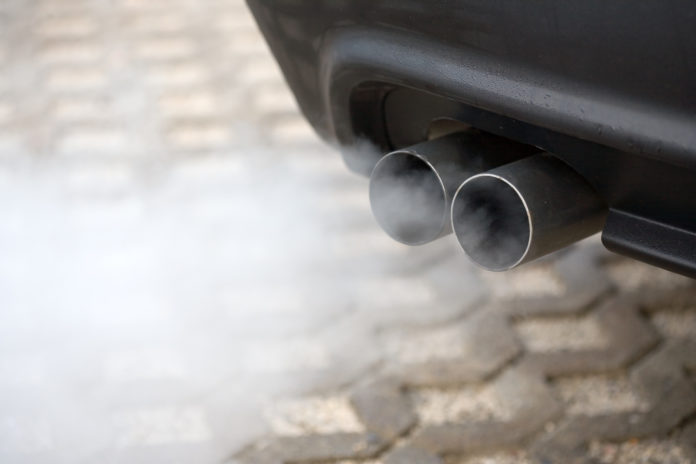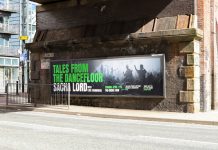Plans to charge polluting buses, taxis, lorries and vans when driving in Greater Manchester from 2021 have been announced.
A clean air zone is to be introduced across all ten Greater Manchester authorities as ambitious proposals to clean up harmful air pollution.
Buses and HGV’s will be charged £100 a day from 2021 if they fail to confirm to legal emissions while taxis and vans will face a charge of £7.50.
However private cars will not be subject to any charge
The plans form part of the strategy to make Greater Manchester one of best places in which to live, work and grow old.
Poor air quality is the largest environmental public health issue facing the UK.
Pollutants, including nitrogen dioxide (NO2) and particulates (tiny particles of dust, soot and liquid droplets) are linked to a range of serious health problems and reduced life expectancy.
It has been estimated that polluted air contributes to the equivalent of 1,200 deaths a year in Greater Manchester alone. Road transport causes 80% of NO2 emissions at the roadside, mainly from diesel vehicles.
Presenting the proposals, The Mayor of Greater Manchester Andy Burnham stressed that the proposals were not a congestion charge but should be seen as setting up a clean air zone.
“It is a major step in the transformation of transport across Greater Manchester and more integration of our transport system making public transport more affordable.” adding we,
“ are taking this action because it is an health issue, the same issue that changed the perception of smoking in public places, the poorest communities are breathing in the poorest air.”
The report to Greater Manchester Combined Authority (GMCA) just published and due to be debated at their meeting on Friday, sets out an outline business case for the ‘Greater Manchester Clean Air Plan to tackle nitrogen dioxide exceedances’, a proposed package of measures to significantly reduce harmful nitrogen dioxide (NO2) emissions from road vehicles.
It puts forward an unprecedented upgrade programme to clean up the city-region’s bus, HGV, taxi and van fleets – future-proofing the road transport system and helping to make it, and the environment, fit for residents today and for generations to come.
It also proposes a Clean Air Zone covering all 10 Greater Manchester local authorities, a population of nearly three million people across 500 square miles, the largest outside London. The zone would require owners of high-polluting, non-compliant HGVs, buses, taxis, private hire vehicles, vans and minibuses – but not cars2– to pay a daily penalty to drive in Greater Manchester.
Modelling shows that including the most-polluting cars would not have reduced air pollution levels any quicker. This is due to the size of the Clean Air Zone required in Greater Manchester and the short timescales for implementation – which together mean that upgrading the most-polluting cars in time would not be feasible.
This would result in non-compliant cars travelling across local roads in Greater Manchester, and therefore continuing to contribute to air pollution levels. Furthermore, the inclusion of cars would also impact on more deprived communities, for whom the cost of upgrading to a newer, cleaner vehicle isn’t a viable option.
An unprecedented package of funding of £116m has been proposed from central government to help the city-region’s freight and logistics sector, taxis and bus operators make the move to low-emission vehicles over the next two to four years.
The proposals would also see a significant investment in 600 new public rapid electric vehicle charging points across the city-region – nearly trebling the size of the GMEV electric charging network. One business which has already invested in electric vehicles and is encouraging its staff to use sustainable travel wherever possible is Seddon Construction. The business has already invested in electric and plug-in hybrid cars and has installed electric charging points at its head office in Bolton.
Eleanor Roaf, Greater Manchester’s Lead Director of Public Health for air quality, said: “Air pollution is making us sick.
“It contributes to major health problems including breathing illnesses, heart disease, stroke and some cancers. And it affects the most vulnerable people in our society most badly – the elderly, sick, children and people living in the most deprived areas.
“Poor air quality is Greater Manchester’s most pressing environmental public health issue and the proposals set out in this report represent a crucial step in cleaning up our air.”
Councillor Alex Ganotis, Greater Manchester Green City-Region Lead, added: “Greater Manchester’s 10 local authorities are showing leadership in developing ambitious proposals to tackle nitrogen dioxide roadside emissions urgently.
“Our proposals offer a balanced approach to addressing this very serious problem while taking potential social and economic impacts into account. They are the result of detailed technical work to understand the scale of the issue, consider options in line with the government’s process, and start producing the right scheme for Greater Manchester.
“However, we know that the right solution can only be developed through engagement with the groups most affected by the proposals.
“I look forward to local councils considering the proposed package of measures and I can assure everyone in Greater Manchester that they’ll have the chance to have their say so we can shape together how we tackle air pollution before any final decisions are made.”
Chris Fletcher, Marketing & Campaigns Director at Greater Manchester Chamber of Commerce, said: “From a business perspective we support these draft proposals but there are two objectives that they must meet.
“The first is obviously to tackle and resolve the issue of poor air quality which is costing people their health and in some cases their lives.
“The second is to ensure that the Government provides the necessary support to ensure that these draft proposals do not risk impacting the economic success of Greater Manchester.
“I am pleased that what is being announced today acknowledges both of these objectives, and we look forward to helping shape these draft proposals over the coming months.”








Sorry, but it IS a road user charge by the back door.
If there is one thing that is guaranteed to increase pollution it is frustrating driving. Low speeds are the cause of excessive NOX being pumped into the city’s atmosphere and the installation of cycle lanes, bus lanes, one way systems, making it difficult to find a parking space, blocking off short cuts, speed humps and lower speed limits all contribute to an increase in pollution.
It is also somewhat disingenuous to claim that you are reducing pollution when you are encouraging people to get rid of perfectly serviceable vehicles long before they would ordinarily upgrade their fleets. The emissions that result from production often exceed those resulting from use.
Make no mistake, this is about raising a revenue stream.
Please remember that we voted against road user charging; we also voted against having a directly elected mayor; The irony appears to be somewhat lost on our blockhead politicians.
This is a joke it is the mayor that as increased pollution in Manchester with 20 miles rd changes this means your car will have to be in a lower gear that means your engine works hardest in lower gear I hope we soon get a chance to vote him out